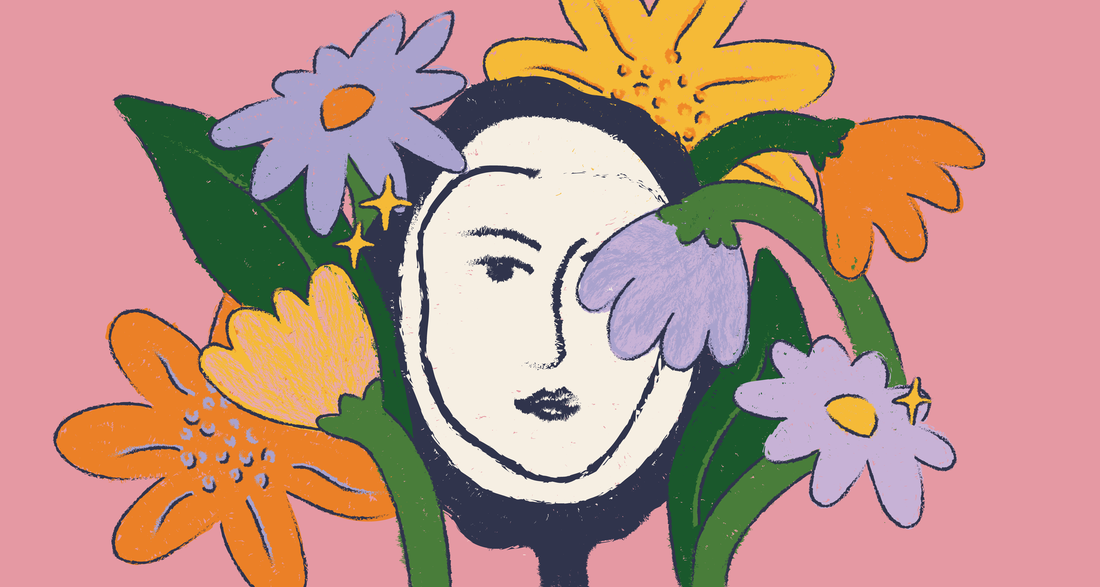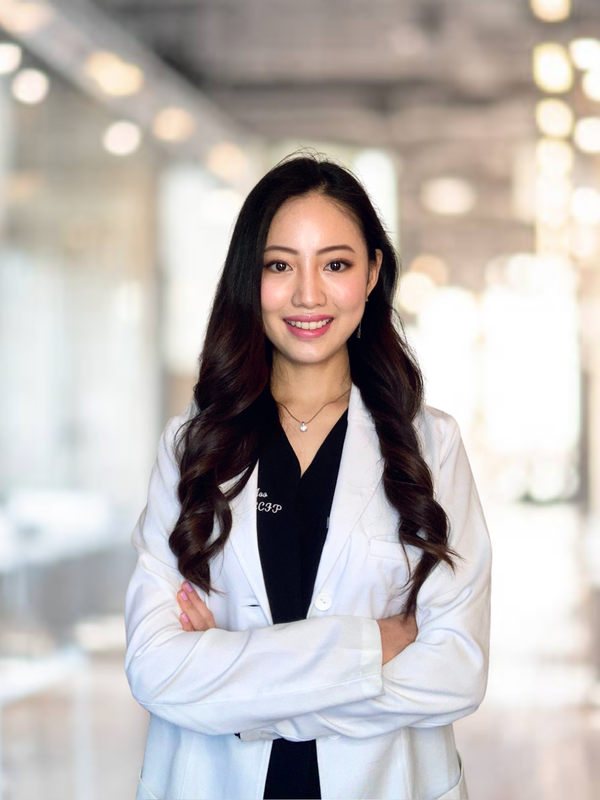Dr. Jiyeh Joo on skin health, pressures of youthfulness, and having a personal understanding of beautyInterview by Mirae LeeAging, in its literal definition, is very much a physical process. The phenomenon of growing old is physically felt and visible on our bodies. It’s also very much an abstract concept in which we define our identities. We base ourselves on the “age” of our appearance—how we should look, how old our skin looks, and how we desire to look. This has expanded into a broader social discussion on beauty and the enticing aspiration to look young. But since we’re bound in our perspective as consumers, we wanted to understand the relationship between aging and beauty from the perspective of a professional working directly in the industry.
We reached out to Dr. Jiyeh Joo, a medical and cosmetics doctor who’s also active on social media, sharing skincare advice and insights into her life at the clinic. On the topic of “aging,” she talks about the importance of skin health, how she responds to skincare trends, including anti-aging, and the need for a personal understanding of beauty. This interview was edited for grammar, flow, and clarity.
In the medical spas, I provide cosmetic and skin consultation and services, including neuromodulators (e.g., Botox), dermal fillers, and platelet-rich plasma, and oversee other aesthetic providers as a medical director. Both provide an opportunity for me to educate and build long-term relationships with my patients. Overall, it’s been such a pleasure to provide comprehensive care and address people’s needs from the inside out.
Outside of work, I am a huge advocate of education, skincare, and wellness. I believe in the importance of empowering others by sharing knowledge and forming communities to support each other. I use various social media platforms to do this: Instagram (@withdr.jiyeh), TikTok (@withdr.jiyeh), and YouTube (With Dr.J). ML: What inspired your interest in skincare? And what compelled you to pursue your career in the beauty industry? JJ: My interest in skincare stems from my personal experience of struggling with eczema, also known as atopic dermatitis. Growing up, I struggled with severe eczema, where I had countless sleepless nights from itching and failed medical treatments. I often had to miss school classes as I was physically and emotionally unable to attend. My self-esteem and confidence hit rock bottom during this time.
Pursuing my career in the beauty industry following my medical training felt like a natural flow, given my passion for skin health and skincare. From my childhood experience with eczema, I understand how much our appearance can affect our self-confidence. Working in the cosmetic field with my medical training provided me with opportunities to help others become their best self inside and out.
ML: You have a video on your YouTube channel from a couple of years ago that goes through your skincare routine. Has your skincare routine changed since then? Is there a trend you’re interested in trying? JJ: Yes, my skincare routine changes depending on the season and my skin’s needs. For instance, I apply a light lotion-based moisturizer during the summer when my skin tends to be oily; in the winter, I add skincare products to further hydrate my skin, including but not limited to using thicker cream-based moisturizer or facial serum. In general, I am quite adventurous when trying different skincare products as there are always new products in the market and your skin’s needs constantly change with time. What remains consistent throughout is the core principle of keeping the skin clean (through thorough cleansing), hydrated, and protected from the sun. There is a concept of “skin cycling,” which has been around for a while but gaining more attention in the media recently. It’s the idea of coming up with a skincare regimen where each day within the cycle (which can be of any duration but typically a few days) focuses on different needs (e.g., exfoliation, anti-aging, hydration). This reduces the chance of skin irritation from applying too many active ingredients. I have been modifying my skincare routine depending on my needs, but I would love to come up with my own skin cycling regimen to see if this will provide better results in the long term. ML: The idea of aging brings fear of physically growing old to many people, including myself. The aging of the skin is often part of this fear as it affects our appearance, especially in Korean society where “youthfulness” (젊음) is highly valued. Do you also feel this fear? How does this fear and desire to look young exist in your practice in the healthcare and beauty industry? JJ: The fear of “growing old” and the desire to “look young” are quite common in my cosmetic practice and are some of the primary reasons that motivate people to come and seek advice. Many come with the hope of correcting changes that happen naturally with time (e.g., wrinkles, sagging of the skin) and make them look different from how they “used to look.” I am not an exception. Seeing physical changes that happen with time can be stressful. I tell myself and my patients that we should embrace these changes, and the goal should be focused on “aging gracefully” rather than “looking young forever.”
ML: I’ve seen in Korean media and heard from the older generation that I need to start thinking about anti-aging at a young age. It’s never too late to start using eye cream, use products with retinol, massage your face, etc. But sometimes I feel like the 20s is still too young to use anti-aging products. What’s your experience with the anti-aging trend? How important is it to use anti-aging products?
JJ: I personally believe it’s never too early to start taking care of your skin and health, as the daily habit is what will result in long-term differences. This doesn’t necessarily mean that people should start using products labeled as “anti-aging” in their teens. What’s more important is tailoring your skincare to your own needs while focusing on the core principles of thorough cleansing, moisturizing, and protecting your skin from the sun. For instance, people with acne would benefit from different skincare products from those with eczema. I also advise people to pay more attention to the ingredients in the skincare products than their labeling and marketing. Even if some products aren’t labeled as “anti-aging,” if it has the right ingredient for your skin, it will do the job! If you aren’t sure, I advise you to talk to a doctor or a skin specialist. ML: What is your most important skincare advice? JJ: Be consistent and patient. It will take time for you to notice a difference with skincare products. It’s not a sprint but rather a marathon. We have to think about the long-term outcomes, not the superficial quick fix. ML: Lastly, what does beauty mean to you? JJ: The term “beauty” is sometimes used as a superficial term to describe physical attractiveness, but I personally believe it extends far beyond that. Beauty to me means being comfortable in your own skin and learning to accept and love the way you are inside and out, including imperfections. We are all perfect in our imperfections, and that’s what makes each and every one of us unique and beautiful. |




